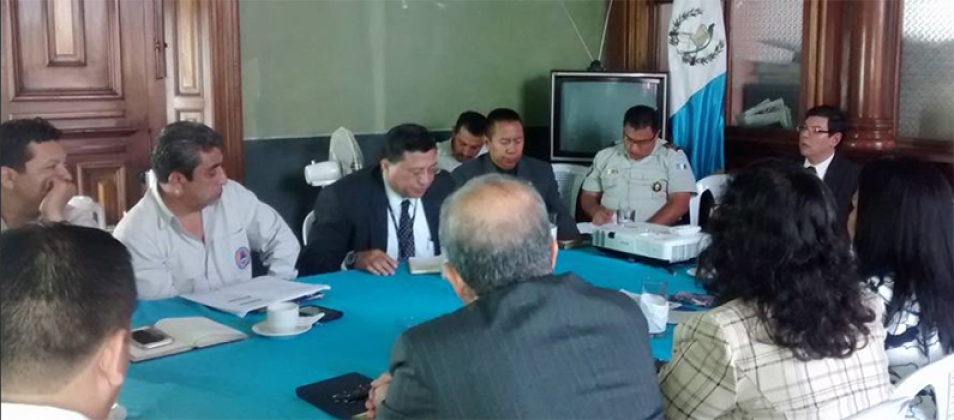
Preventing and Mitigating Electoral Violence in Guatemala
by Fernanda Buril*
As we celebrate International Day of Non-Violence on October 2, we are reminded of the importance of peace in our efforts to strengthen and consolidate democracy. The ability for people to participate in elections free from the fear of harm is essential to inclusive, credible elections and protected by the right to human security and universal suffrage. In Central America, and more particularly in Guatemala, this freedom of fear has not been a reality for many citizens. As the general elections approach, Guatemalans have seen a rise in the number of political assassinations and in intimidation and threats against candidates, community leaders, and journalists.
To help address this problem, the International Foundation for Electoral Systems (IFES) has been providing technical support to the Guatemalan Supreme Electoral Tribunal (TSE) on electoral violence prevention and response coordination since 2011. IFES' approach is twofold: 1) to strengthen the technical capacity of the TSE and other public institutions to prepare for and respond to the risk of violence using effective security planning and measures; and 2) to support the TSE and other electoral stakeholders in the sensitization of the population to promote a culture of peace and tolerance during the electoral period.
One of the first activities of the United States Agency for International Development-funded “Support Electoral and Political Parties Reform and Strengthen the Guatemalan Congress Project” was the development of an electoral security assessment that informed the recommendations and support that IFES subsequently provided to the TSE. IFES' comprehensive assessment focused on the most frequent categories of victims of violence and threats, a mapping of the regions at higher risk of election-related violent incidents, and an analysis of the main causes of conflict in the country. IFES capitalized on its local partnerships to facilitate the coordination between the TSE, other public institutions working on security issues, and technical experts to build security plans and protocols to be implemented prior to, during, and after the 2015 general elections. During the last electoral process, IFES’ conflict resolution workshops for TSE inspectors and volunteers reached over 200 participants, preparing them to defuse potential incidents of violence. To increase public awareness of electoral violence and engage citizens in the promotion of a culture of peace and tolerance, IFES also supported the development of television and radio campaigns condemning electoral violence, targeting particularly the regions identified as having higher risk of conflict.
Ahead of the 2019 general elections, IFES is again working with the TSE to update these assessments and create solutions to the new challenges these processes will bring. IFES is also ready to coordinate with other partners to engage political parties and civil society in a nationwide pact for peace.
IFES understands that peace requires continuous efforts by all sectors of society and cannot be limited to the electoral cycle. We will keep working with our local and international partners to improve security conditions in the country so all Guatemalan citizens are able to exercise their civic rights and contribute to the consolidation of Guatemala’s democracy.
*Fernanda Buril is a program coordinator for the Americas region and technical coordinator for electoral operations at IFES.









